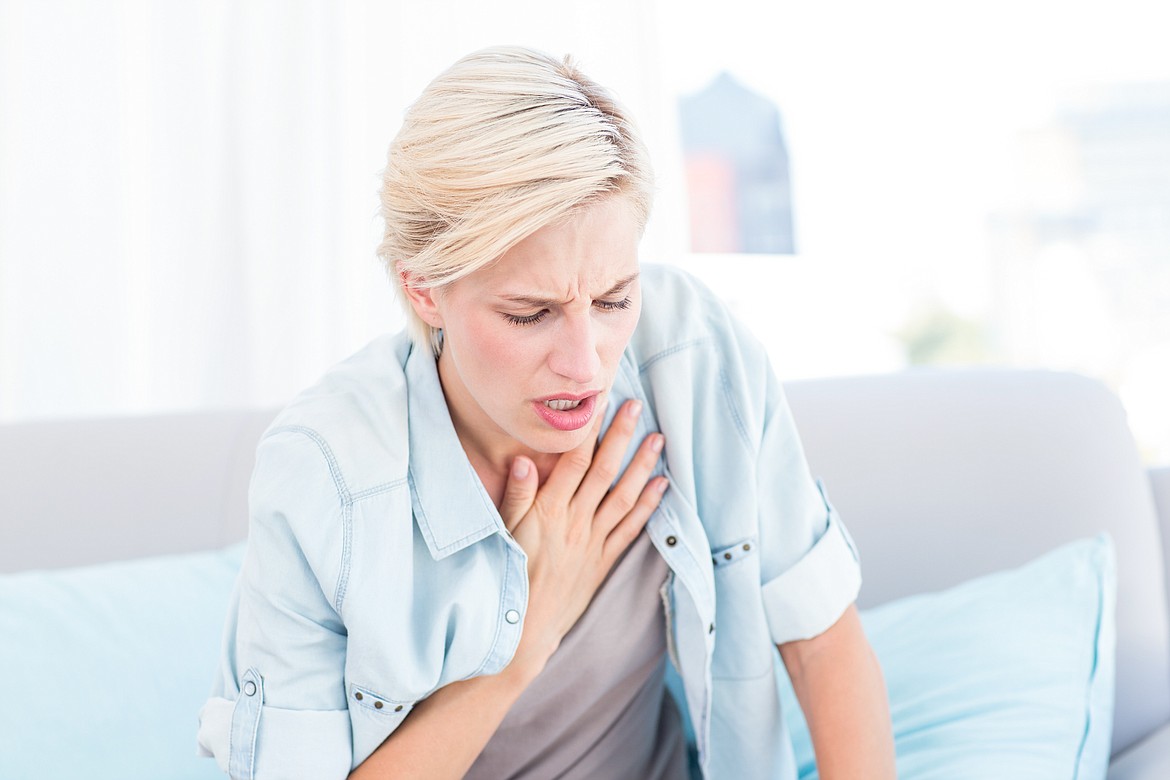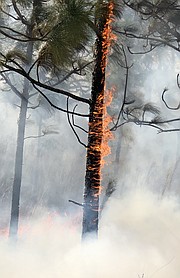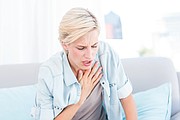All choked up: Poor air quality can impact people with respiratory issues
As forest fire season rages across the region, the air quality has left many people feeling like they are being slowly choked to death.
Poor air quality from wildfires can result in shortness of breath, coughing, burning eyes and chest pain. Patients with chronic respiratory conditions like asthma and COPD should be very concerned, said Dr. Anthony Rehil-Crest with Heritage Health.
“Wildfire smoke can make anyone sick, but patients with COPD or asthma are especially at risk because smoke can cause their conditions to worsen or flare,” Rehil-Crest said. “Pay close attention to air quality reports. Most weather reports will include an Air Quality Index (AQI).
“This is a measure of the air pollution in your area. The higher the number, the greater the level of air pollution and the greater the health concern. For example, an AQI of 50 or below represents good air quality, while an AQI of 100 or greater is unhealthy and certain sensitive groups such as people with asthma or COPD may experience health effects.”
Limiting your time outdoors on poor air quality days, especially if you’re in a sensitive group, is essential — if not lifesaving.
What steps should patients with chronic lung issues take to avoid making their situation worse?
“The first step is making sure you have a plan of action,” Rehil-Crest said. “This often starts with making sure that you have enough medication on hand and that it’s not expired. Patients with COPD and asthma often use a rescue inhaler when they get sick, but if you don’t use it that often you might find that your inhaler expired. Make sure you have stocked up on medications and that they are not expired.”
It’s not just lungs that can be impacted by smoke. The Journal of the American Heart Association found exposure to heavy smoke raises the risk of out-of-hospital cardiac arrests by up to 70 percent.
What can people do to protect themselves from the smoke?
Setting up a safe room in your home is a good starting point, says Rehil-Crest.
“You can easily do this by choosing a room in your home that you can close off from the outside,” Rehil-Crest said. “Set up a portable air cleaner or filter in that room so that the air is always cleaner than the outside. This can be a respite on days when the wildfire smoke is at its worst.”
Rehil-Crest also recommends that people should stock up on foods that don’t require grilling or frying.
“When the wildfire smoke is bad, you want to minimize exposure to any smoke, even the smoke that would come from cooking food,” he said. “It just takes a little planning.”
Finally, if a person is having respiratory problems, seek medical attention.
“Make sure you call your doctor if you start to have respiratory symptoms like shortness of breath or cough that are not relieved with your usual medications,” Rehil-Crest said. “Your doctor may need to prescribe a short course of other medications to help you get through this time.”
To schedule an appointment if you’re concerned about your respiratory system call 208-620-5250.





